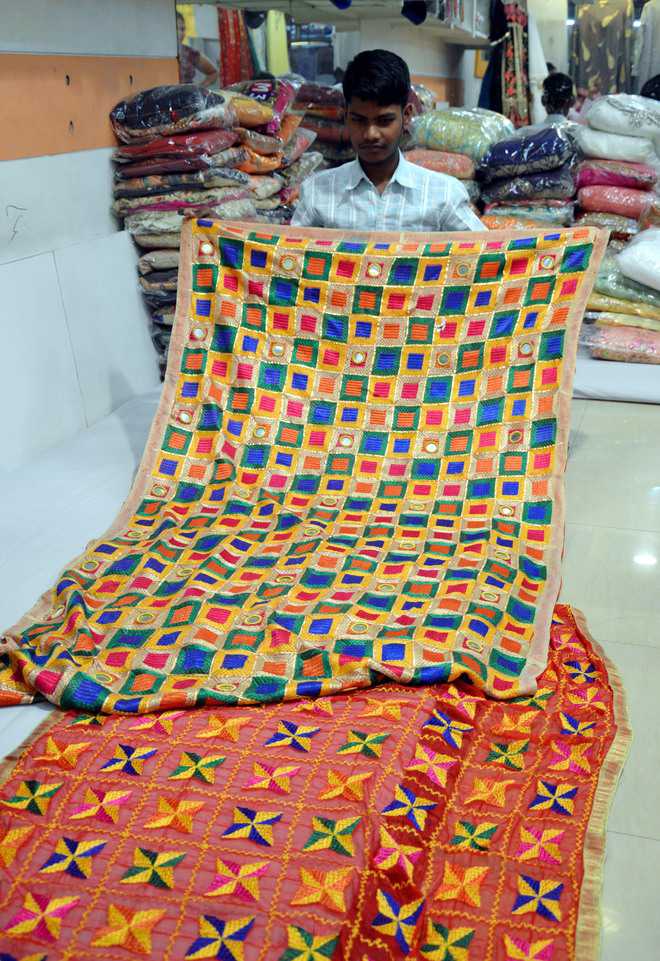Tribune News Service
Ludhiana, August 1
To save the handcrafted phulkari, artisans want that phulkari should be treated on a par with saree with respect to levying the Goods and Service Tax.
They said the GST council has honoured ‘saree’ by treating it as a fabric and taxed it under the basic slab of five per cent. Saree of any value will be taxed uniformly.
However, phulkari which is the centuries-old traditional handcraft of Punjab will be taxed at 12 per cent if it costs more than Rs 1,000, but if the same phulkari is converted into a saree then it will be taxed at five per cent. According to artisans, this is unfair.
“The GST council has segmented saree into the fabric category, thus taxing it under the basic slab of five per cent. Considering the cultural significance of regional clothing, all traditional handicrafts should be taxed under the slab of five per cent,” said Sonu Nilibar from Nilibar Silk Store at Mall Road.
“Our artisans and craftsmen, who have toiled their whole life and earn their livelihood by doing work on these costumes to help retain our heritage, also need promotion and support.
To protect, promote and support the rich Indian heritage, these ethnic Indian attires, deserve to be treated on a par with the saree. Since these articles do not have any specific HSN code defined for them, there exists confusion among the trading communities as well the craftsmen and artisans about the status of the taxability of these articles,” he said.
He said: “The artisans, karigars and traders feel insecure in the present scenario. The work that goes into making phulkari products is equally taxing as that of making sarees. This situation might give rise to harassment by inspectors on the ground level. So, the apprehension among traders and artisans is justified.”
“It becomes the duty of the government and the trader community to promote our heritage, so that the generations to come do not sway into western wear and forget our own heritage,” said Sajid, an embroidery worker at Sunet village. He said they had been doing the embroidery work since generations, but if the rate of tax on the products became too high, they might have to discontinue the work. “We have been put under the complex tax system which is beyond our comprehension. We will be taking professional help to sail through the new tax regime, but the government should lower the tax slab on these traditional embroidered dupattas which are the pride of Punjab,” said Sajid.
Unlock Exclusive Insights with The Tribune Premium
Take your experience further with Premium access.
Thought-provoking Opinions, Expert Analysis, In-depth Insights and other Member Only Benefits
Already a Member? Sign In Now











